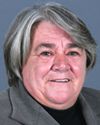Mr. Speaker, I rise on a point of order with regard to a breach of Standing Order 106(3) by the chairman of the Standing Committee on Canadian Heritage.
On June 20, 1994 and on November 7, 1996 the Speaker made the following ruling:
—while it is a tradition of this House that committees are masters of their own proceedings, they cannot establish procedures which go beyond the powers conferred upon them by the House.
In both these cases the committees in question were in breach of the provisions of Standing Order 114.
In this case the chairman of the Standing Committee on Canadian Heritage is in breach of Standing Order 106(3) which directs the committee as follows:
Within ten sitting days of the receipt, by the clerk of a standing committee, of a request signed by any four members of the said committee, the Chairman of the said committee shall convene such a meeting provided that forty-eight hours notice is given of the meeting. For the purposes of this section, the reasons for convening such a meeting shall be stated in the request.
I submitted a letter pursuant to Standing Order 106(3) to the clerk of the Standing Committee on Canadian Heritage on February 18, 1999. The contents of the letter are as follows:
We are writing pursuant to Standing Order 106(3) to convene a meeting of the Standing Committee on Canadian Heritage for the purpose of hearing testimony from former National Arts Centre Director John Cripton and possibly other expert witnesses, and to examine additional information concerning the NAC which has not been available to the Committee to date.
Today is the 12th sitting day and the standing committee has yet to convene such a meeting. What the committee did was deal with the issue in a routine steering committee meeting instead of convening a specific meeting to consider the request.
If you check, Mr. Speaker, every request under Standing Order 106(3), you will note that in every case the chairman convened a specific meeting to deal with the request. It is no coincidence that every committee does this.
If we allow committees to deal with requests under Standing Order 106(3) at a routine steering committee then Standing Order 106(3) becomes redundant. We do not need Standing Order 106(3) to propose a motion at a routine steering committee. The intention of Standing Order 106(3) is to allow the minority on a committee to have a specific meeting convened to consider its request.
A routine steering committee is often in camera and crowded with other items. The actions of the Standing Committee on Canadian Heritage rendered Standing Order 106(3) redundant. We cannot allow a committee to enjoy that kind of independence from the House. Beauchesne's sixth edition, citation 760(2), states:
Committees receive their authority from the House itself and the authority of the House overrides that of any committee.
Mr. Speaker, I would ask that you rule on this matter. I would ask that you consider if the chairman of the Standing Committee on Canadian Heritage is in breach of an order of the House and guilty of a grave contempt.














